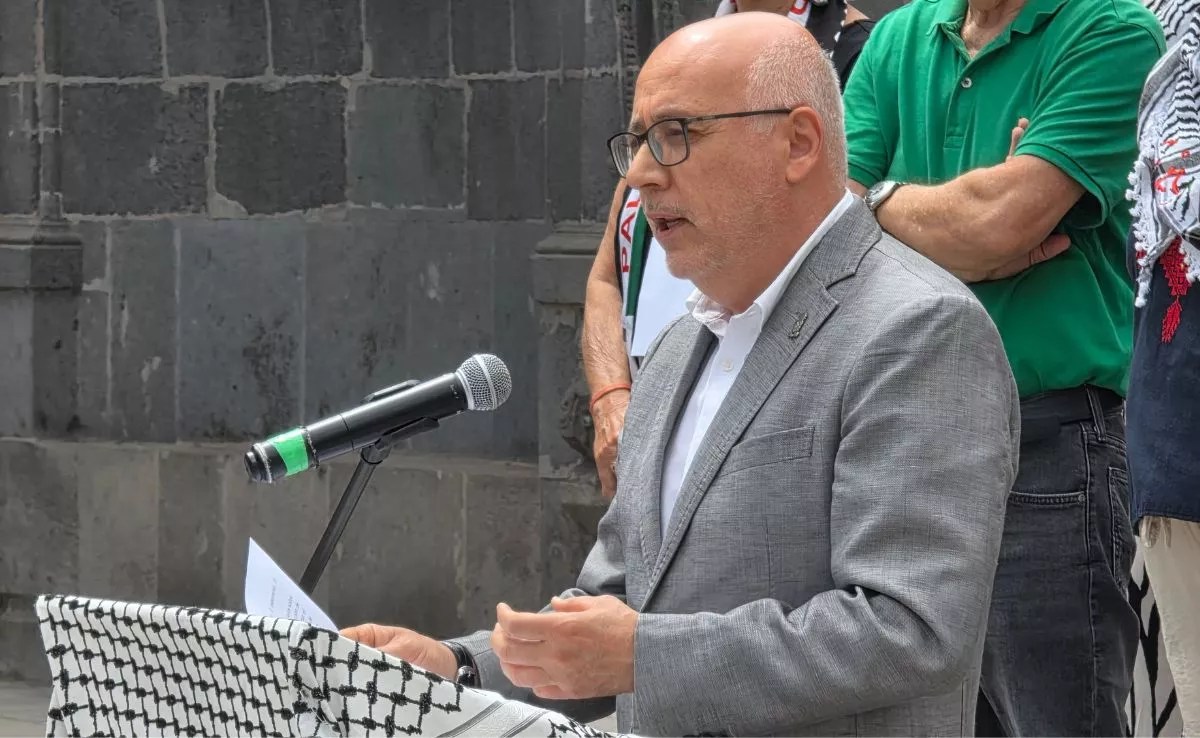The City of Puerto de la Cruz, through its concessionary company Aqualia, announced this Friday that it plans to reopen Garden beach “before summer.” The beach has been closed for more than ten months (since July 2024) due to sewage spills into the sea.
Following the completion of the first intensive cycle of cleaning and civil works in the sanitation and storm network in Punta Brava, the City Council began the second intensive maintenance cycle on May 2, the Consistory explains.
These actions have led to a “remarkable improvement” in the results, reducing potential spills and optimising wastewater treatment, as noted in a statement. The City Council assures that the results of the analyses conducted by Public Health demonstrate that since mid-December 2024, the quality of the waters in the Garden beach bath area falls within favourable or legally permitted values.
However, it’s worth noting that in March, the PSOE publicly denounced that the data provided by the City Council was inaccurate and released other figures that contradicted their claims. “Since December 17, there have been three episodes of contamination by E. coli: on February 10 and 26, where the levels at various sampling points exceeded the limit set by the Ministry of Health of 250, along with a separate episode for enterococci on February 5 that exceeded the value of 100,” stated the PSOE. According to the Socialists, these analyses indicate that residual spills continue to cause contamination at the sampling points in the bathing area.
Of the eight days in which analyses were conducted in 2025, the PSOE noted that three exceeded health limits at all three sampling points. “If we examine 40 days of samples since July 1, 2024, 18 indicated results above the permissible levels, suggesting that nearly half of the samples in both 2024 and 2025 still show elevated levels, which prevents the lifting of the bathing ban,” said the PSOE.
First cycle
The City Council explained this Friday that during the first cycle, which spanned from February to April 2025, a variety of actions took place, including cleaning the Decanta Caletón and streets like Ruimán, Pelicar, Víctor Machado, Tegueste, Doctor Fleming, Pelinor, Romen, Dácil, Beneharo, Añagua, Guayanfanta, and Bencomo.
In addition, work was undertaken on the surrounding coastal collector to prevent obstructions and ensure a proper flow of wastewater, with new wastewater pumps being installed in Ebar Caletón and Ebar Playa Chica, tailored to the specific characteristics of each station.
An overflow collector was also implemented in the Ebar Caletón spillway to enhance monitoring.
Furthermore, manual cleaning of imbornales and verification of the integrity of wells, tops, and records in the western, central, and eastern sectors were conducted, which is essential to prevent flooding. An imbornal that flows into the maritime-terrestrial public domain was also improved.
Second Cycle
The second cycle of cleaning and civil works began on May 2 and continues today. During this period, the City Council reports that cleaning of the same infrastructure has been conducted, along with improvements made to the rainwater spillway on Ruimán Street. There’s also been work on managing excess stormwater flows in the Ebar Caletón using a backhoe.
Manual cleaning of Imbornales and continuous checks in both the western and central sectors are, well, a “fundamental part” of the process. Next on the agenda are additional manual cleaning efforts for the Imbornales as well as thorough checks of the wells in the western sector. Also, there’s the cleaning of the sewer systems in the streets of Dacil and Beneharo.
Plans also include improving the excessive rainwater drainage in Ebar Caletón using a backhoe, as well as continuing necessary cleaning work on the coastal collector at Playa Chica and in Añagua and Guayanfanta streets.
Additionally, the Council highlights medium-term actions that have been implemented, such as the Flow Diversion Project from the vera to the interceptor collector.
This project received sector authorisation from the Aguas de Tenerife Board on April 21, 2025, and has been technically approved to start the bidding process.
Regarding long-term actions, significant improvements are planned for the municipal wastewater pumping stations (EBAR) and spillways, which are included in the new contract for the integral water cycle.
In this regard, the draft for the construction and operation, along with a robust investment programme of nearly 30 million euros, was initially approved by the Plenary during the session held on March 31, 2025.
“Improvement of the Environment”
The Mayor, Leopoldo Afonso, affirms that the City Council is dedicated to the protection of the entire coast of Puerto de la Cruz and, consequently, to enhancing the quality of life for residents. “The actions carried out in collaboration with Aqualia reflect our firm commitment to reopening the beach garden before summer, ensuring a clean and healthy environment for everyone,” he stated.
The sustainable councillor, David Hernández, pointed out that tangible progress is being made through specific actions that strengthen the commitment to sustainability. “Implementing the flow diversion project represents a significant step towards more responsible and efficient water management, which will benefit the whole city.”
For his part, the Councillor for General Services, Alonso Acevedo, believes that the results achieved so far are encouraging and demonstrate that the strategies in place are effective.
“We will keep working hard to ensure our beaches remain clean and safe, making sure the beach garden is a place where everyone can enjoy themselves without worries,” he added.
Lastly, the Councillor for Administrative Concessions, Pedro Antonio Campos, stated that improvements to sanitation networks are essential for the sustainable development of the municipality and to have a beach garden again this summer. “Intensive cleaning, maintenance of our networks, and civil works not only prevent marine pollution, but also guarantee an efficient service for our neighbours.”
















